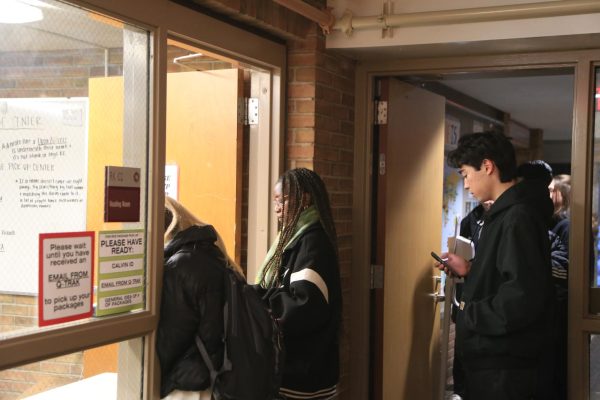‘Challenges to the Next President’ discusses Christianity and public policy
As election season quickly approaches, the Henry Institute for the Study of Christianity and Politics at Calvin has organized the Challenges for the Next President series, a set of panels intended to offer a more in-depth, nuanced understanding of some of the year’s most contentious political issues. Last Wednesday in the DeVos Communications Center lobby, Calvin professor of environmental studies Jamie Skillen and Jason Ballor of the Acton Institute launched the series by discussing one of the most polarizing issues in politics: the environment.
Skillen and Ballor discussed why Calvin, as a Christian institution, ought to care about environmental policy, and also elaborated on which issues the next president will most need to address. The panel resisted supporting any specific presidential candidates; rather, they emphasized the issues themselves, encouraging each participant to make a personal decision based not on political bias but on accurate information and a basic understanding of environmental issues.
Particularly, the panel interwove environmental policy with the concept of Christian stewardship, emphasizing how our world belongs to God and that how we live within this world requires engaging difficult questions of resource management, pollution prevention and mitigation of climate change.
“Navigating [environmental issues] can be difficult, especially from a Christian perspective,” said Abbie Schutte, a third-year Henry Institute student research fellow who opened the event. “What’s important is that our views on the environment, on caring for creation, align with the testimony of scripture.”
“Within scripture, we see that our world belongs to God,” said Ballor. “We also see that humans are created in the image of God, and that in some sense, God’s world also belongs to us.”
From this perspective of human ownership of the environment, Ballor stressed the importance of using resources, like fossil fuels, wisely.
Focusing less on the theological basis for Christian stewardship and more on the policy issues, Skillen emphasized the imperative that the next president address energy policy, “particularly in the context of climate change.”
“During its second term, the Obama administration has really made progress on some key environmental issues,” said Skillen. “Following that administration, the next president will have to start with addressing climate change and energy reductions. … If we assume that we must reduce greenhouse gas emissions in the United States, Christian political thought has a lot to add to this debate.”
“Christians can disagree in good faith about different environmental problems and solutions while recognizing the responsibility God gave us to care for his world, regardless of its circumstance,” said Schutte. “By grounding ourselves in scripture, learning about the issues and gracefully interacting with fellow believers and citizens, we can play our part in answering God’s call to steward creation responsibly.”
Next month, the Challenges for the Next President series will focus on immigration, followed by religious freedom scheduled for April and restorative justice and incarceration in May.






